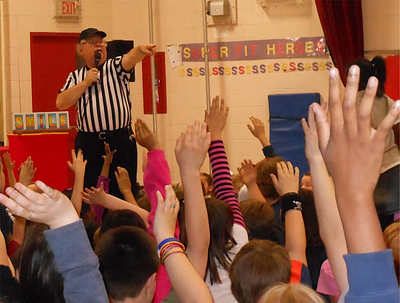 At this time, every year, around the country, young parents are being thrown into new volunteer tasks with their PTO or PTA organizations. Some are charged with fund raising activities, others with membership drives, while still others are made secretaries or treasurers. But to some falls the task of arranging school assemblies. And what, they think to themselves, is a school assembly? What is a school assembly program? What do you mean I am to arrange the enrichment programs?
At this time, every year, around the country, young parents are being thrown into new volunteer tasks with their PTO or PTA organizations. Some are charged with fund raising activities, others with membership drives, while still others are made secretaries or treasurers. But to some falls the task of arranging school assemblies. And what, they think to themselves, is a school assembly? What is a school assembly program? What do you mean I am to arrange the enrichment programs?
The industrious young mom or dad gets to work and finds there is a whole world from which to choose. There are jugglers, and clowns, and rope twirlers. There are science shows, science museums. There are authors and children's theatre companies with productions of children's plays known and unknown. There are story-tellers young and old. There are guys with guitars and guys with african drums. There are dance groups and artists with cans of paint. And they all look good! How to begin?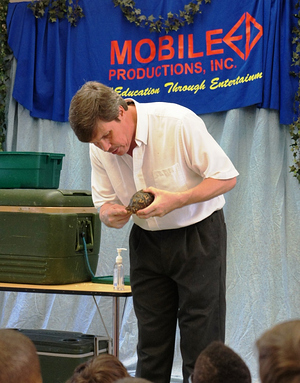
The first place to start when beginning to plan ideas for school assemblies is what the school has had in the past. What school assemblies were there last year? The year before? What went well, and more important, what didn't? Knowing which school shows to repeat is important. Ask the principal. Good ones will know, but sometimes their schedules preclude them from being in attendance. Ask the teachers. Ask other moms and dads. You will get some ideas. Don't be surprised if a lot of people have no idea. Many school assemblies are forgettable. These are the ones to avoid.
You will also need to get a feel for what kind of direction you wish to take. Traditionally, school assemblies of the past were little more than entertainment, and many of these shows remain available in the form of magic shows, clowns and shows that feature athletic skills such as basketball or BMX bikes. While very entertaining, these types of programs do take kids away from valuable class time without any real, tangible educational value. In these days of increased testing and mounting pressure on schools to perform, wasting class time is a real no-no. Thankfully, many truly educational options now exist, in forms that are equally entertaining. Try to determine whether your school (especially your principal) prefers simple entertainment or programs that are educational and entertaining art the same time. But, if you opt for the latter, beware. There are many “entertainers” offering supposedly educational programs while actually performing their “act” with only minor modifications as a token nod to real “content”. In the trade these are known as “magic shows in drag” and they should be avoided. 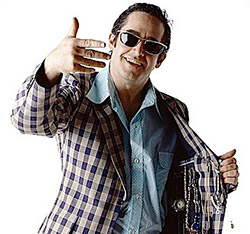 And that does not mean it is always a magician. A guy performing tricks on a bike while telling kids to “”feel good about themselves is not a real self esteem program nor a good character ed show, as entertaining as it may be. If you are looking for a science program, make sure you are getting a science program and not a magician doing tricks and then promising that the trick is “real science” but without explaining anything.
And that does not mean it is always a magician. A guy performing tricks on a bike while telling kids to “”feel good about themselves is not a real self esteem program nor a good character ed show, as entertaining as it may be. If you are looking for a science program, make sure you are getting a science program and not a magician doing tricks and then promising that the trick is “real science” but without explaining anything.
So, having now ascertained from other parents and the teachers, that the “old lady story teller” was boring, that the poet was obnoxious, the “science” show was really a lame magic act, but that the mobile planetarium was awesome, as was the guy who did the Martin Luther King show, you are ready to begin.
Knowing which school assemblies to avoid is, perhaps, more important than knowing which ones to book. Obviously, you want to avoid the bad or boring ones. But sometimes it is wise to avoid the great ones. After all. No matter how awesome a school assembly may be, you really do not want to repeat it more than, say, every three years (unless it is only performed for one grade level).
Kids are easily bored seeing the same show every year. If your school really likes a mobile planetarium, book it every three years. In that time, in a typical k-5 school, the older grades will leave, and the younger grades will move up to take their place. When the planetarium returns the younger grades will not have seen it, while the older kids will have a vague, three year old recollection of something they really liked, but they will, being older, experience it in a new and more understanding way. They will get a lot out of the show that they missed the first time, especially when the presenter tailors the program to the age of the audience.
Alright, now we are getting somewhere … or are we? We have ruled out the story teller for being boring, and the poet for being obnoxious, but we must also rule out the two good ones as it is too soon to do them again. What to do? Back to square one? Well, not quite.
Often, school assembly performers will offer more than one show. The guy who brought you the awesome Martin Luther King program may also do a science show, or a character education show. If so, it is probably a safe bet to invite him back. Or, he may work through a company or agency that has other historical characters. If they provided such an awesome Martin Luther King, chances are that their Abraham Lincoln or Ben Franklin or Mark Twain will be equally good. The mobile planetarium was also a hit, so look at the same company. Do they have other shows? Anything similar? A chemistry program perhaps, or a day long hands on science event. Again, if the first program was good it is likely their standards are high and other shows from that company will be, too.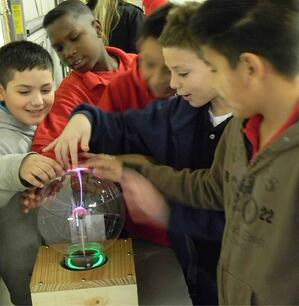
So you are beginning to get a feel for what you want. Now it it time to consider cost. What can you afford? Most school assembly performers and companies that provide school assemblies will have a set structure for their pricing. You may need to request it from them, as few school assembly providers post their prices online, but the information should be readily available with a simple request.
Be aware that school assembly performers all operate differently. Some will have high fees. Others will seem low in price but will make up for it by tacking onto the basic price mileage, accommodation, and a host of other fees. Some will charge high fees to begin with and still add on a host of “hidden” fees (authors of books for children are notorious for this practice – and many, once you jump through hoops to get them to the school, end up being boring. Remember, writing is not a performance skill!). However, some providers and performers, not only charge lower prices, and refrain from additional fees, but also offer discount packages. One example might be getting a discount on programs if you schedule multiple programs from the same provider in the same school year. Of, course, to be able to provide such a service, the performer or company needs to have a catalog of shows. This would rule out the performer who is a one trick” pony. If you like him, bring him back every three years.
Other discounts may be available for booking in conjunction with another school. Be sure to ask about such arrangements.
This leads to another point. Communication with the performer. For your peace of mind and to avoid problems, it is important to be able communicate easily with the provider of your assembly. In the case of some school assemblies, this can be difficult and frustrating as the person you need to speak to is also the performer and he or she must find time between shows in order to return your call. On the other hand, larger companies provide regular office hours and are usually far superior in terms of accessibility and customer service.
So, now you are all set!
But, don't hesitate. Call early. Experienced coordinators and principals will schedule in the Spring for the following school year, because dates will fill in. Don't wait until the last minute or you are almost certain to be disappointed. And be aware that many performers tour and are not likely to be available on the exact date that you want. Try to go into the booking procedure with a degree of flexibility and a sense of humor.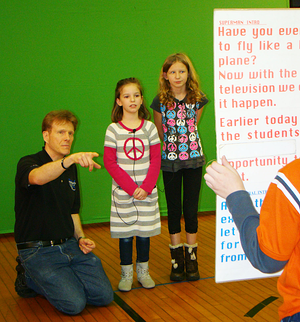
This time of year you are one of many, many moms and dads across the country, all scrambling to book their dates. You will get through it and it will work out. Really. If you need help, call us! We have been doing this for 33 years. We can help! Really!
Geoff Beauchamp is the Regional Manager of Mobile Ed Productions where "Education Through Entertainment" has been the guiding principal since 1979. Mobile Ed Productions produces and markets quality educational school assembly programs in the fields of science, history, writing, astronomy, natural science, mathematics, character issues and a variety of other curriculum based areas. In addition, Mr. Beauchamp is a professional actor with 30 years of experience in film, television and on stage. He created and still performs occasionally in Mobile Ed's THE LIVING LINCOLN






